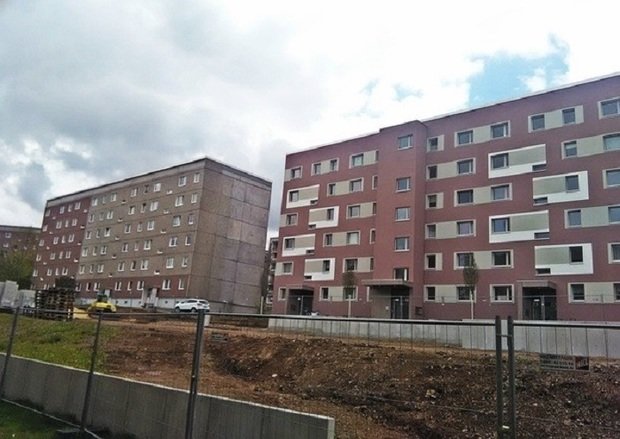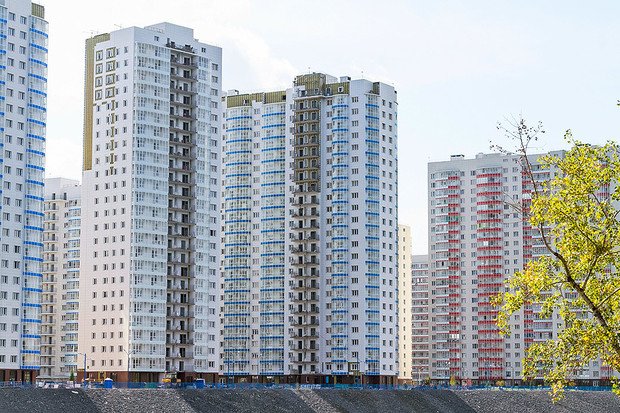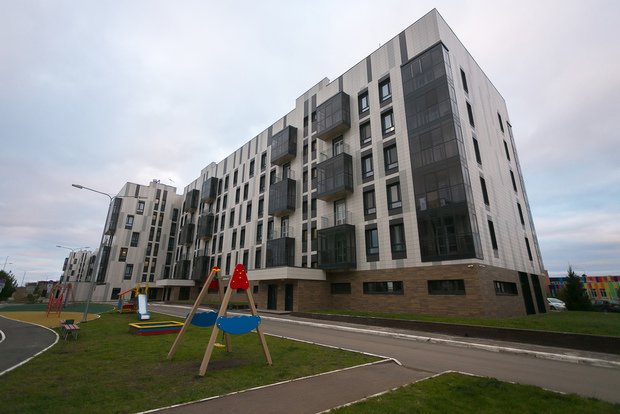Irina Ilyina, HSE: ''Tatarstan can already be considered as a smart region''
What path do Russian cities follow to develop – Asian or European? Why do developers house people in blocks of flats? What are the drawbacks of the first stage of the renovation? How should it look in the country's regions? Can we call Tatarstan a smart region? How will unmanned vehicles change the infrastructure of our cities? Director of the Institute for Regional Studies and Urban Planning of Higher School of Economics National Research University Irina Ilyina answered these and other questions of Realnoe Vremya.
''There will certainly be a period of more correct, realised and creative approach to the problem of renovation''
A bill on extension of the dwelling renovation programme to all regions of Russia was introduced to the State Duma in September. Mrs Ilyina, would like to know your opinion about this initiative considering that wave of protest the renovation caused in Moscow.
Firstly, we need to understand the state of the housing fund in Russia's regions. For instance, house development from the middle of the last century, the construction of well-known five-storey blocks of flats, or Khrushchyovka blocks, affected absolutely all regions of our country. A very big volume of house construction was registered in the 70-80s. The problem is that this dwelling really becomes obsolete. It becomes obsolete both physically and spiritually. It needs a kind of adaption to contemporary conditions.
The idea of the renovation of dwellings declared in Moscow now is absolutely correct. But the renovation must be understood directly: it's not obligatorily demolition of old buildings and construction of new ones instead. Renovation means a renewal of a dwelling. This is why it's necessary to find out which houses really need to be demolished and which simply need to be adapted to contemporary conditions.
When Moscow started to speak about the renovation, one could quite often hear references to the experience of Germany, Great Britain and other countries where this process had already ended or was taking place at the moment. I can say about the renovation in Berlin we sometimes even take our students to.
It would be interesting to know.
As rule, there isn't any demolition there. A building is upgraded and is adapted to contemporary conditions thanks to which people get absolutely amazing houses.

''When Moscow started to speak about the renovation, one could quite often hear references to the experience of Germany, Great Britain and other countries where this process had already ended or was taking place at the moment.'' Photo: fedselsovet.online
Is there any chance we will choose Berlin's path instead of complete demolition of the old housing fund?
Now we're at the first stage of renovation when they really want to demolish old buildings. At the same time, I'd remind that at the beginning the idea of renovation in Moscow supposed the demolition of entire quarters, instead of which it was planned to erect new mass dwellings. However, this option wasn't approved. Firstly, it's quite expensive to demolish this all. Secondly, people need to be quickly rehoused somewhere.
The first stage of renovation is taking place now when separate buildings are demolished, while people, as a rule, are rehoused into already built blocks of flats with other programmes. I think as time goes by, there will certainly be a period of more correct, realised and creative approach to the problem of renovation and there will be an understanding that it's not necessary to demolish all buildings. I will remind that the Moscow renovation programme included brick houses and houses with good conservation indicators first, that's to say, all houses were on the list.
''You unwillingly start thinking it's not done for people but for investors''
Almost the last question on this topic. I read comments of users on the news on expansion of the renovation to regions. And many people expressed their discontent because their cosy houses would likely be substituted by huge blocks of flats like in Moscow…
This suits the frames of the process I talked about previously: when a dwelling is demolished and people need to be rehoused urgently, of course, there is no time to build unique buildings. This process takes much time, and this can really happen at the first stage.
What's your personal attitude to this kind of houses or more active spread of such human anthills across the country?
There are many reasons here. But, first of all, it's economy of land and the highest profit from an area.
Does it mean that the person is far from being a priority?
Yes, of course! Moreover, it's the development of private investors. By the way, it's the reason why the problem of reconsideration of urban engineering design standards is arising in Moscow now. At the moment, the average construction density is 25,000 square metres per hectare in a quarter. This is why these ''humanhills'' don't meet these standards. Consequently, construction density needs to increase.
Of course, this is possible in big cities. On the other hand, look at London or Paris – quite comfortable development prevails there, though it's as big cities as Moscow. Here the problem is that this procedure must be well thought out. When this is done quickly, you unwillingly start thinking it's not done for people but for investors who build God knows what. For this reason, of course, ''humanhills'' are specific.
In general, there were quite many discussions about the development path Russian cities followed. And in most cases, experts concluded that we were moving towards Asia, not Europe. Look at Beijing, Shanghai, Kuala Lumpur or Tokyo with their tower buildings. In fact, it's very strange for Russia because we don't have problems with land.

''We were moving towards Asia, not Europe. Look at Beijing, Shanghai, Kuala Lumpur or Tokyo with their tower buildings. In fact, it's very strange for Russia because we don't have problems with land.'' Photo: sibdom.ru
''There are special organisations promoting 'anti-smart' ideas''
Mrs Ilyina, I'd like us to switch to the topic of smart cities. There is an opinion that the concept of a smart city has already crossed the borders of urban development. In some cases, it's quite fair to talk about the entire smart cities. Do you see such a tendency?
I do agree with it. Smart city in itself isn't a goal but a tool. What is smart, in general? It's use of innovative information technologies when creating cities that are comfortable for current and future generations. It's a tool to achieve sustainable development, a comfortable life, to have a job, a dwelling and all benefits. Now almost every Russian city has information technologies that are involved in citizens' lives. This process can't be stopped, as there is demand, and the scientific and technological progress goes on (there is a law of dependence of scientific and technological progress on demands).
We should also take into account that cities don't exist on their own – it's space development centres. Any city has industrial zones, countryside settlements around itself. In other words, agglomerations or even mega-agglomerations we're talking about are created. For instance, Moscow and Saint Petersburg. There has almost been created a single space between them. By the way, this year, we've substituted lectures about smart cities for smart regions at the HSE because these innovative ideas serve as drivers to develop territories, in general.
Do you think we can call Tatarstan a smart region?
Figuratively speaking, we can point out first-, second-, third- and fourth-generation smart regions. All Europe is already moving towards the fourth-generation development when innovative technologies exist on their own, but at the same time, they are linked among each other. Naturally, Tatarstan where such a centre as Kazan is created and there is Innopolis and Almetyevsk can already be considered as a smart region.
Mrs Ilyina, don't you start having anti-utopian moods when talking about smart cities or smart regions? It seems to me one can easily miss the moment when we switch from simple urban life monitoring to total control.
Total control is a well-known thing. This problem is very topical in cities where smart technologies reached a high level of development – they even start having special organisations promoting ''anti-smart'' ideas. In this respect, I often remember Orwell's novel 1984. This topic concerns me a lot too.
You just open your computer, it's already full of messages and ads, moreover, everyone knows about you: your birthday, weight, age, preferences. If you decided to look for something on the Internet, be ready to receive information on this topic for a week afterwards.
It's a very dangerous situation, of course. Developing smart technologies, it's extremely important to provide a person's private space. Everyone has the right to have a personal life and personal freedom, it's very important. Legal measures need to be taken in this respect, and not only in Russia – it's a worldwide problem.

''Tatarstan where such a centre as Kazan is created and there is Innopolis and Almetyevsk can already be considered as a smart region.'' Photo: Roman Khasayev
''The situation with unmanned vehicles is comparable with bicycle riders to some extent''
In the end, I want to ask you a couple of questions about unmanned cars. Now Russia doesn't have laws regulating this sphere as well as infrastructure. But numerous experts promise this all is about to come. How do you think the appearance unmanned vehicles will change our cities? How much will it affect the citizens' life?
I always say that our problem is that we try to design cities of the future looking at contemporary requirements. The same general plans or some other documents are created 20 years beforehand. Who knows what will happen in 20 years, especially with such dynamic development of the scientific and technological progress? This is why the situation with unmanned vehicles is quite complicated.
Perfect conditions for unmanned cars' traffic are among those of their kind. In this case, it can be regulated. When usual, unmanned cars, pedestrians are on one road… Have you ever been to India? You drive on a road, while cows, elephants and buses are next to you – everyone moves in one flow, due to which serious problems arise. We need to avoid such a situation with unmanned cars.
I think we shouldn't hurry up. We need to plan, forecast and calculate everything smartly to make unmanned vehicles really safe. We should probably create special lanes for such vehicles.
I imagined separate lanes or separate roads for unmanned cars.
It's quite possible. But now it's impossible in Russian cities. This experiment requires very serious and real foundation. For instance, if we create a separate lane for unmanned cars, we need to know their share in the general flow of cars. For instance, Moscow has 4,5m cars. How many of them are unmanned cars? Obviously, not four million. Of course, we will be talking about several cars. But to create an alternative for them… It's comparable with bicycle riders to some extent – they account for 5% in Moscow as maximum. But we create infrastructure for them. But at least a healthy lifestyle, ecology and so on can be provided as argument. Though the climate in Russia and the sizes of our cities don't allow to say the bicycle will become a full-fledged vehicle. Neither did it become so in London or Paris.